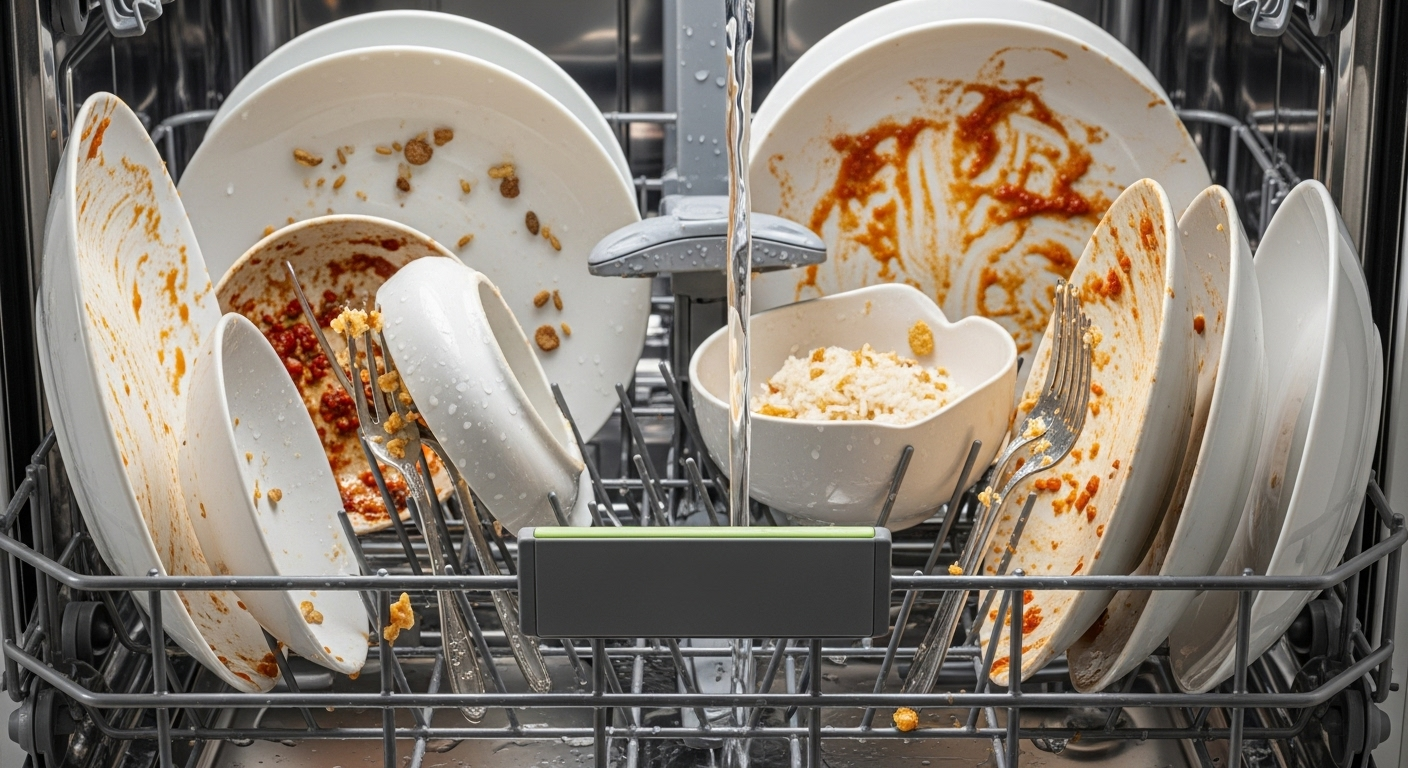The Great Dishwasher Debate: Skip the Rinse, Save the Planet
If you're still pre-rinsing your dishes before loading them into the dishwasher, you're not alone—but you are wasting time, water, and potentially making your dishes less clean. Modern dishwashers and detergents are specifically designed to tackle dirty dishes, and the evidence overwhelmingly supports a simple mantra: scrape, don't rinse.
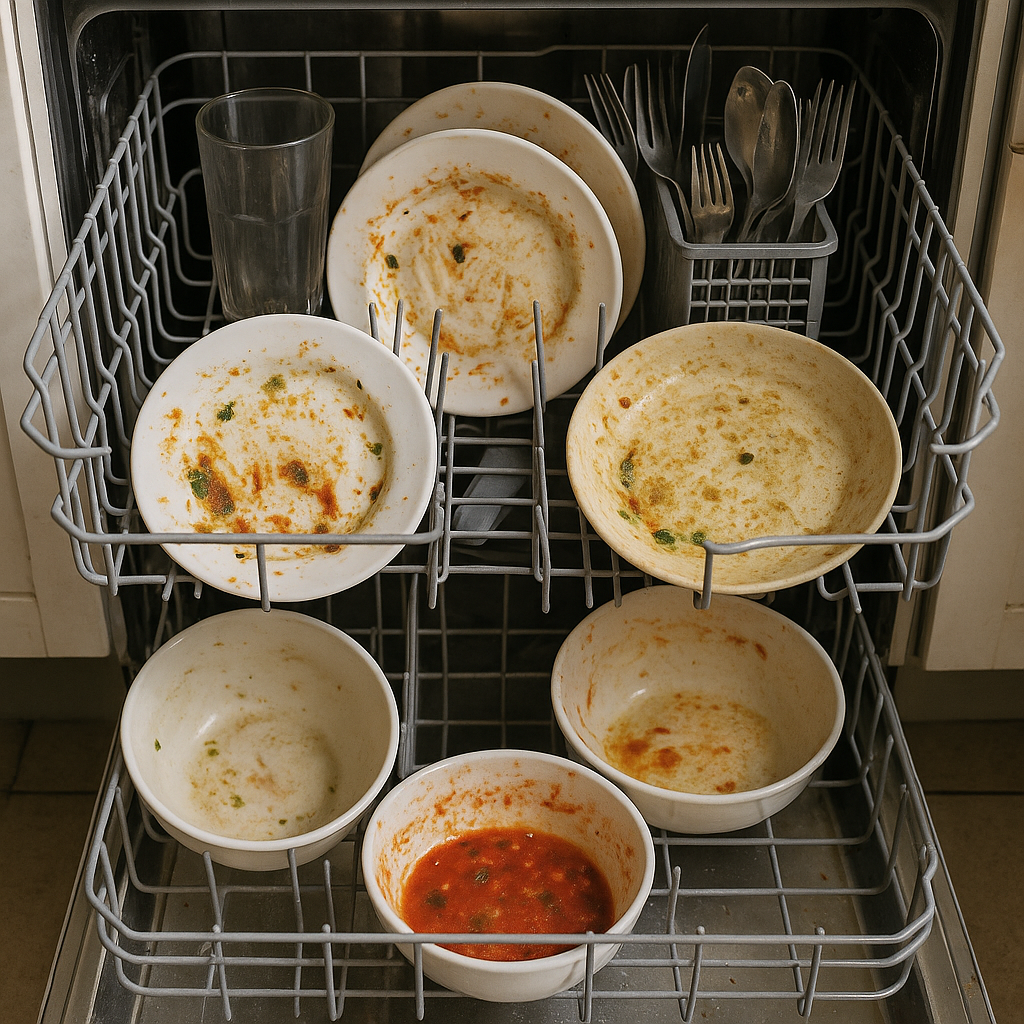
Why Pre-Rinsing Actually Hinders Your Dishwasher
The science behind modern dishwashing reveals a counterintuitive truth: your dishwasher performs better when dishes aren't squeaky clean before loading. Here's why:
Detergent Enzymes Need Food to Function
Modern dishwasher detergents contain sophisticated enzymes—amylase and protease—that break down proteins and starches by latching onto food particles. When you pre-rinse dishes, you remove these particles, leaving the enzymes with nothing to work on. As detergent manufacturers explain, without food debris to attack, the enzymes' cleaning power becomes underutilised, and they may rinse away before completing their job.
Smart Sensors Require Dirty Water
Many contemporary dishwashers feature turbidity sensors that measure water cloudiness to determine soil levels. When the sensor detects murky water (indicating food particles), it automatically adjusts the cycle for a more thorough clean—extending wash time, increasing temperature, or adding more water as needed. Pre-rinsing confuses these sensors into thinking dishes are already clean, resulting in a shorter, less effective cycle.
The Environmental and Financial Cost of Pre-Rinsing
Pre-rinsing dishes under running water is an environmental disaster in disguise. Consider the numbers:
- Water waste: Running a tap uses 2-5 gallons per minute, meaning pre-rinsing a typical meal's dishes can consume 10-25 gallons
- Dishwasher efficiency: Modern Energy Star certified dishwashers use just 3-5 gallons for an entire cycle
- Annual impact: A typical household could save up to 140 gallons per week by stopping pre-rinsing
The financial implications are equally compelling. Beyond increased water bills, you're paying to heat additional water that serves no cleaning purpose. Research suggests that using a dishwasher without pre-rinsing can reduce greenhouse gas emissions by up to 72% compared to handwashing, largely due to reduced hot water usage.
What You Should Actually Do Before Loading
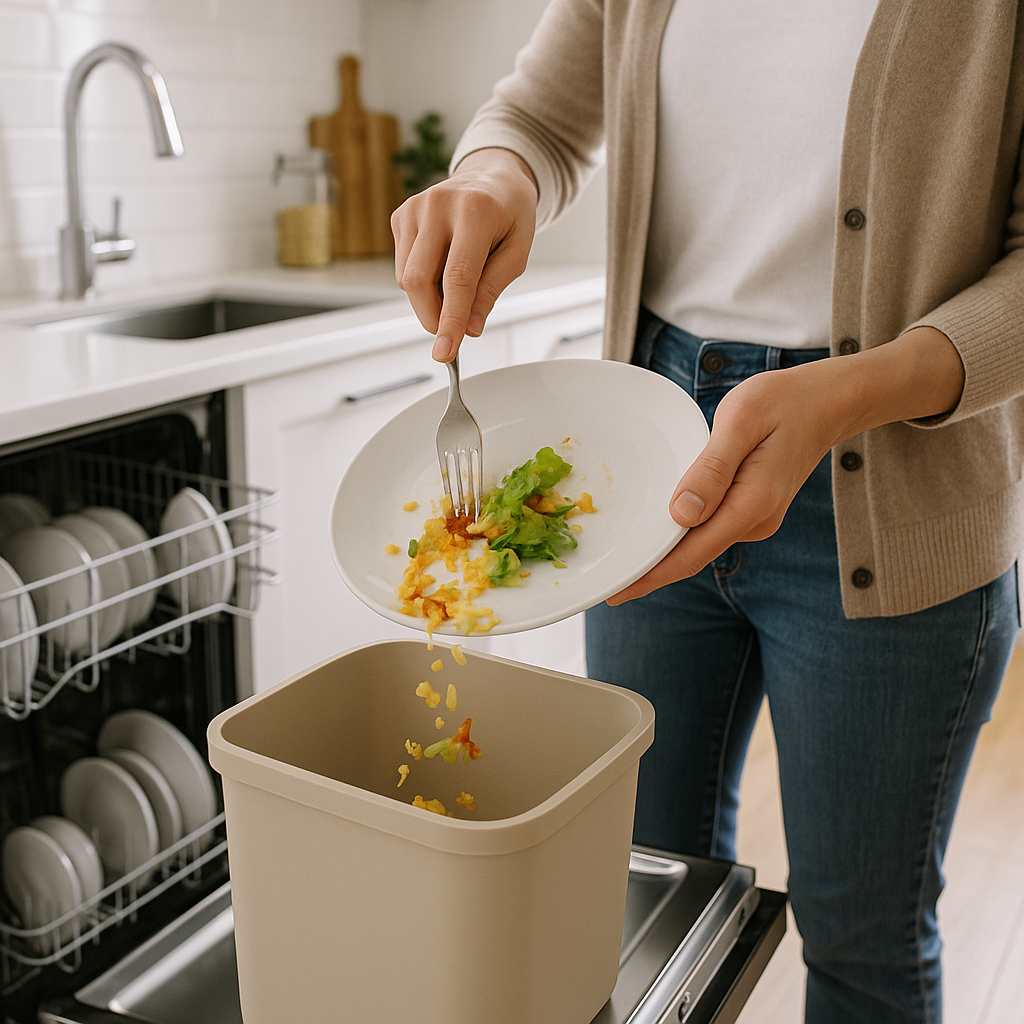
Scrape, Don't Rinse!
Remove large food particles, bones, toothpicks, and excessive grease with a fork or knife. This prevents clogging your dishwasher's filter and drainage system whilst leaving enough residue for detergents to work effectively.
Items requiring extra attention:
- Sticky foods like pasta, rice, and porridge that can cement onto dishes
- Leafy vegetables that might wrap around spray arms
- Seeds and pips that could block filters
- Large bone fragments that won't break down
Special Considerations for Delayed Washing
If you won't run the dishwasher immediately, you might worry about food drying and becoming difficult to remove. Don't panic—modern detergents are formulated to rehydrate dried food during the wash cycle. However, for particularly stubborn items like egg or cheese that have been sitting overnight, a quick scrape with warm water (not a full rinse) may help.
When Pre-Rinsing Might Be Necessary
Whilst the general rule is "don't pre-rinse," there are rare exceptions:
- Very old dishwashers (pre-2010) may struggle with heavily soiled dishes
- Extremely burned or carbonised food that has been sitting for days
- Items with dairy-based sauces in very hot weather if washing is delayed
- Dishes with food allergens when washing mixed loads
Even in these cases, a light rinse rather than thorough cleaning is sufficient.
Maintaining Your Dishwasher for Optimal Performance
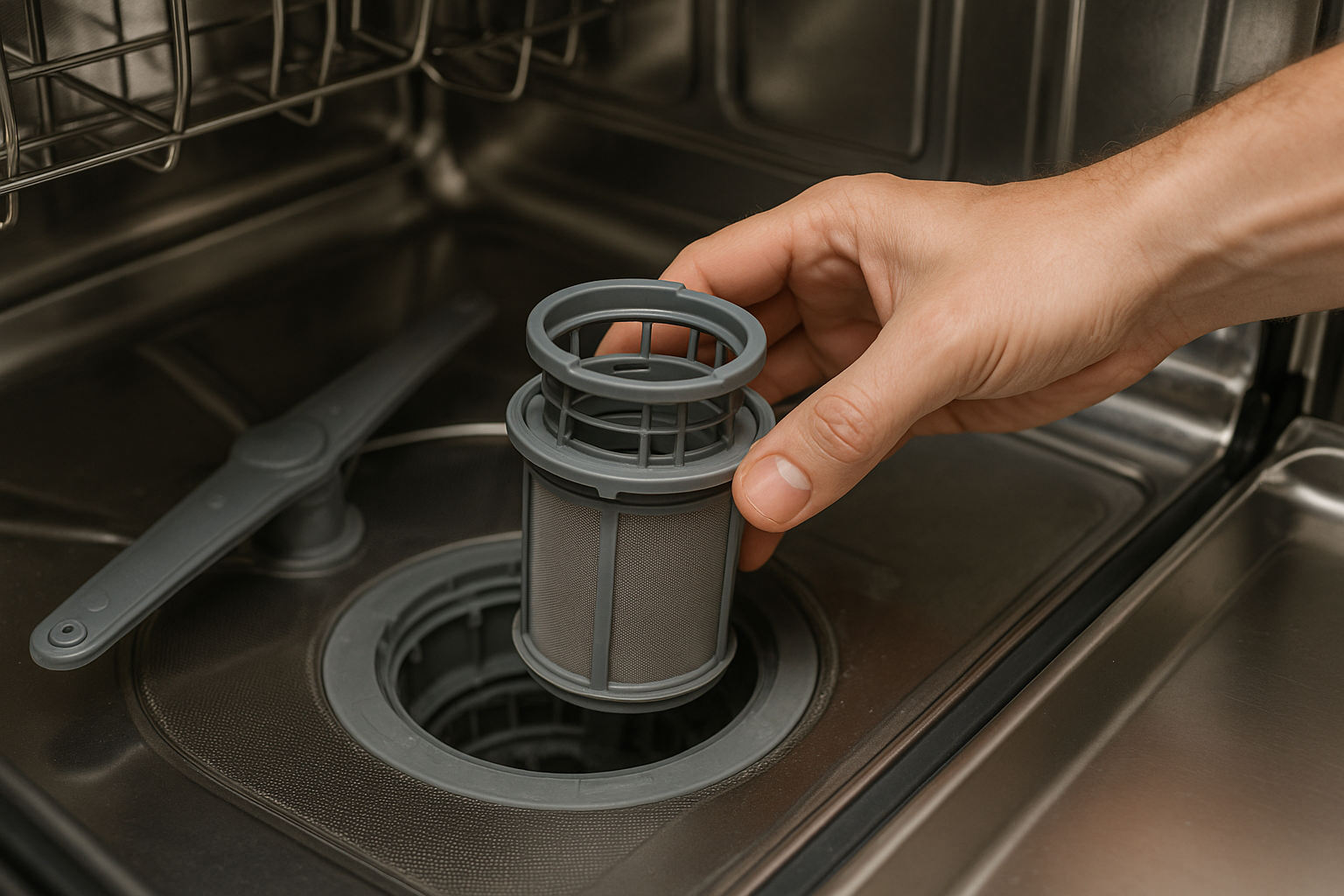
Monthly Filter Cleaning
Your dishwasher's filter captures food particles during the wash cycle. Clean it monthly by:
- Removing the bottom dish rack
- Locating the cylindrical filter (usually near the spray arm)
- Twisting it counterclockwise to remove
- Rinsing under warm water and scrubbing gently with a soft brush
- Replacing and locking back into position
Quarterly Deep Cleaning
Run an empty cycle with dishwasher cleaner every three months to remove grease buildup and maintain optimal performance. This is particularly important when following the no-rinse approach, as more food residue passes through the system.
Check Your Detergent Choice
Ensure you're using quality detergent with enzymes. Powder and tablet forms typically contain more enzymes than gels. If you have hard water, consider adding rinse aid to prevent streaking and improve drying performance.
Loading Tips for Maximum Cleaning Without Pre-Rinsing
- Face soiled surfaces towards spray arms for maximum water contact
- Don't overcrowd racks—water needs to circulate freely
- Angle bowls and cups to prevent water pooling
- Separate cutlery to prevent nesting and ensure thorough cleaning
- Place heavily soiled items on the bottom rack where spray pressure is strongest
Troubleshooting Common Concerns
"My dishes come out with food still on them"
This usually indicates loading issues, insufficient detergent, or a clogged filter rather than inadequate pre-rinsing. Check that spray arms can rotate freely and that you're using enough quality detergent.
"There's food buildup in my dishwasher"
Some food residue in rails and corners is normal and won't affect performance. However, excessive buildup suggests the filter needs more frequent cleaning or you're not scraping plates adequately before loading.
"My glasses are cloudy"
Cloudiness typically results from hard water mineral deposits or too much detergent, not insufficient pre-rinsing. Add rinse aid and consider reducing detergent quantity.
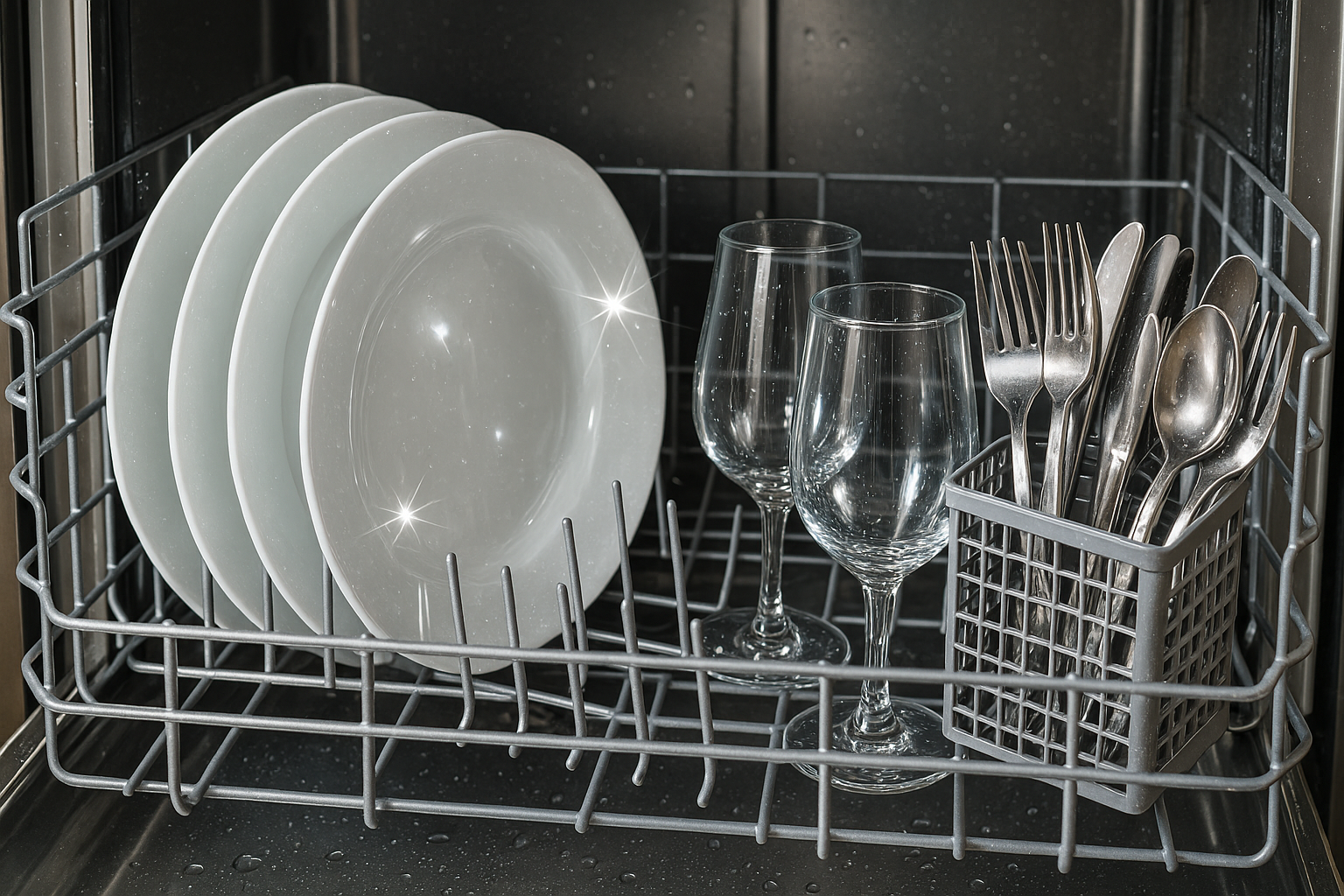
The debate is settled: skip the pre-rinse, scrape your plates, and trust your dishwasher to deliver sparkling clean results. Your wallet, the environment, and your valuable time will thank you for it.
